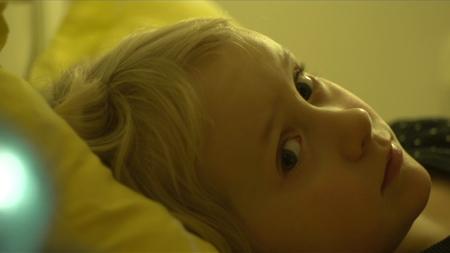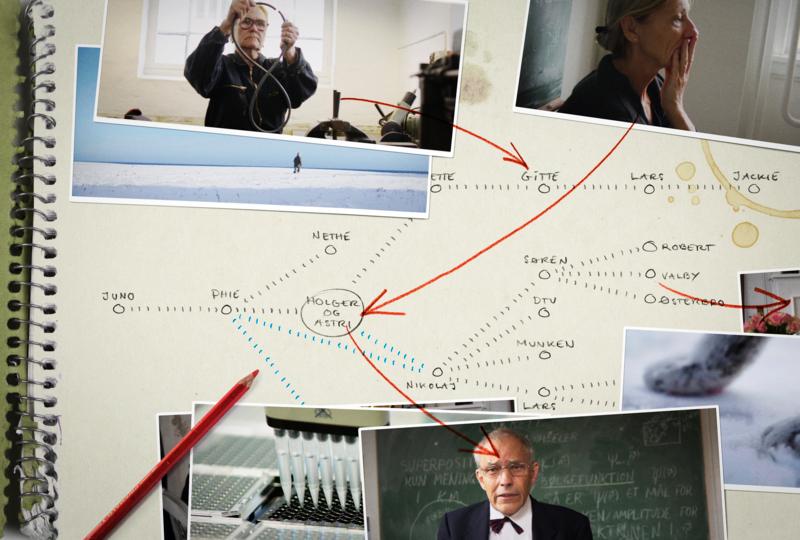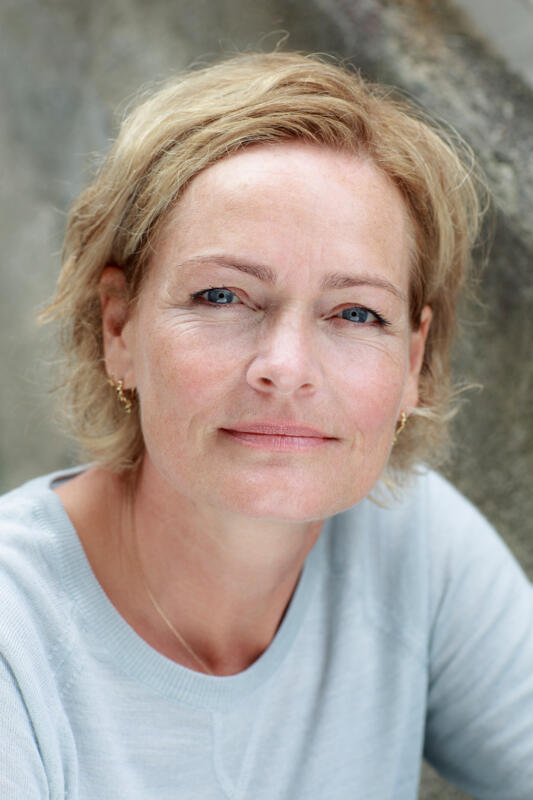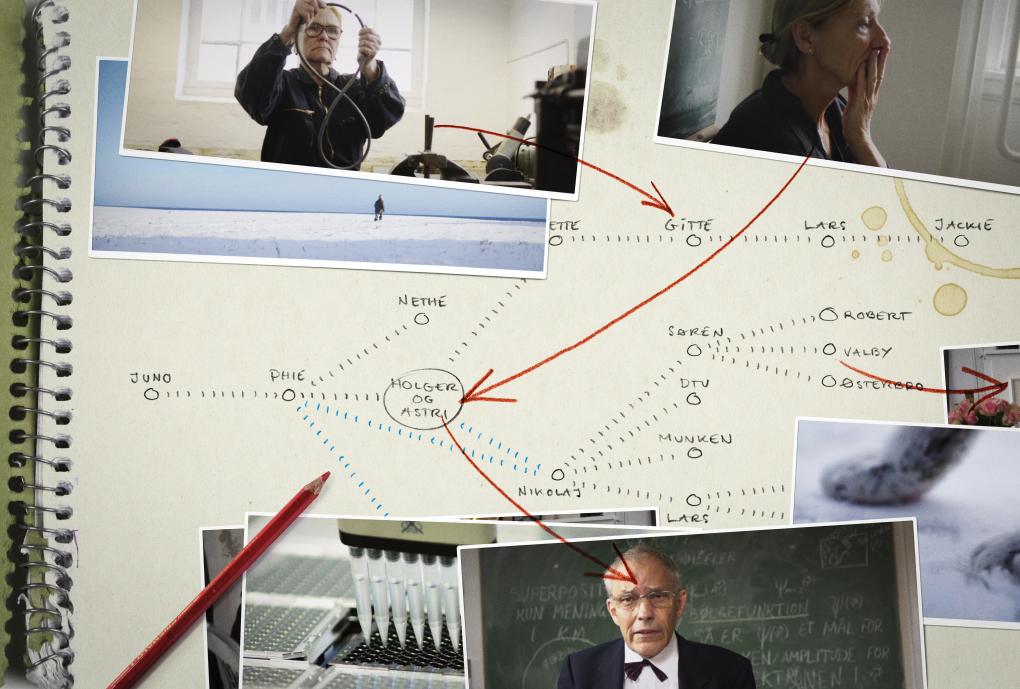
Does consciousness exist outside the body? The question is intangible and ambitious, but documentary filmmaker Phie Ambo asks it all the same in her film '…when you look away,' starting from the laws of quantum physics and the curiosity of her daughter, Juno, and herself.
Quickly concluding that no one, not even in science, knows the answer, Ambo takes an alternate path.
The film shows her meeting with a relay of people who share their theories or experiences of consciousness and subtle energies – from a five-year-old who feels that she is an animal to physicists at the Niels Bohr Institute in Copenhagen, a clairvoyant, a property caretaker experimenting with revitalised water, a quantum biologist, a monk and a meditation teacher working with children who have spiritual insight.
Are you any smarter about consciousness now?
"I have at least been confirmed in my belief that there are a lot of doors we haven't even opened yet, and that we are very far from charting all the riddles of life. We always think we're standing at the pinnacle of progress and can't get any smarter, but then the world quickly turns out to be a lot more complex," Ambo says.
"We experience a lot of things we can't explain, but we have a tendency to not take that seriously. It's about being open to seeing when someone is breaking down a wall. I really hope the film will help hack the hierarchy we have about who can contribute knowledge and move society forward."

Does it matter if we have consciousness outside of the body?
"It matters if we have untapped potential. The fact that water communicates with water, and that we humans are made of water, means that there is a high probability that something similar happens between people. Understanding ourselves as biological creatures could be important with regard to health and treatment options. It matters in terms of how we see ourselves as people and the responsibility we have to respect all living things, once we understand that human beings are not an isolated entity."
Controlled Chaos
Inspired by the so-called double-slit experiment, which remains a riddle to quantum physicists, because it shows that electrons can be in several places at once and that they behave differently when they are being measured, Ambo looks at whether consciousness can also be in several places at the same time. Whether, like electrons, consciousness behaves differently when it is being observed and perhaps only appears when we are looking the other way.
To get at an answer, she developed a filmic method, where she blocks her consciousness from influencing the experiment by letting go of control and leaving things to chance.
In practice, this means that, after her initial meeting with high-energy physicist Holger Bech Nielsen, she can't look up any sources. They have to come to her, either directly or via each other. And, she has to go and talk with anyone who approaches her.
Did you ever get stuck?
"Yes, there were times when nothing happened for two months. It was nerve-wracking. But with this film, I set out trusting that something would happen. And it did. Doing that also put me in a mental boot camp, because I had to try not to control things more than necessary.
"On one hand, it was a super chaotic project, because I didn't know who might pop up. On the other hand, it was very controlled, because the conditions were so rigid that I really didn't have to think about it, but just do what I had decided to do.
“Apart from leaving things to chance, I had two other rules: one was to edit the film chronologically. The other was to take everyone at face value. When someone calls me up and says something about wire hangers, I have to go check it out, even if I think it sounds too weird.
"As a result, I get all these quirky characters in the film that might have been strained out by an ordinary dramaturgical filter."
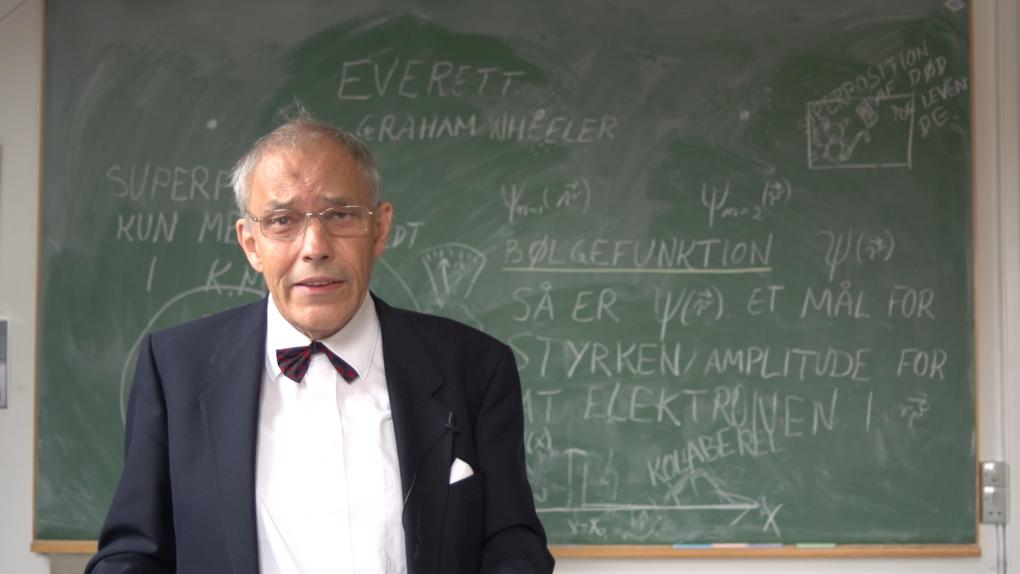
Someone Always Comes in the Door
Do you intend to continue with this method?
"No. I developed it for this film, because it deals with an area we don't know anything about, and I wanted to prevent my preconceived notions from closing off new ideas.
"But I can take away the experience that whatever needs to be in the film is bound to appear. That has happened in every one of my films. You think things are going completely wrong, that nothing will ever come of it, that I won't get the shooting permit – but things have a way of working themselves out. Someone comes in the door and, presto, off we go again.
"In my work as a documentarian, I have always felt that there was a pattern underlying everything, a weird dynamic in the way people come into my films. I always had this fascination with chance, but in this film I have taken the method to an extreme."
Why did you use yourself so much in the film?
"Any attempt to define consciousness is super subjective, because we know so little about it. So I figured I had to put myself out there, too, and make it subjective. Not pretend that this is objective research, but clearly show that I'm investigating an experience my daughter had.
"If I hadn't used myself, the audience wouldn't have had the map that shows how the characters are connected and how reality presented itself to me. I'm the starting point that all the stories originate from. It was important to me to illustrate that cause and effect, which is also why the film is cut chronologically"
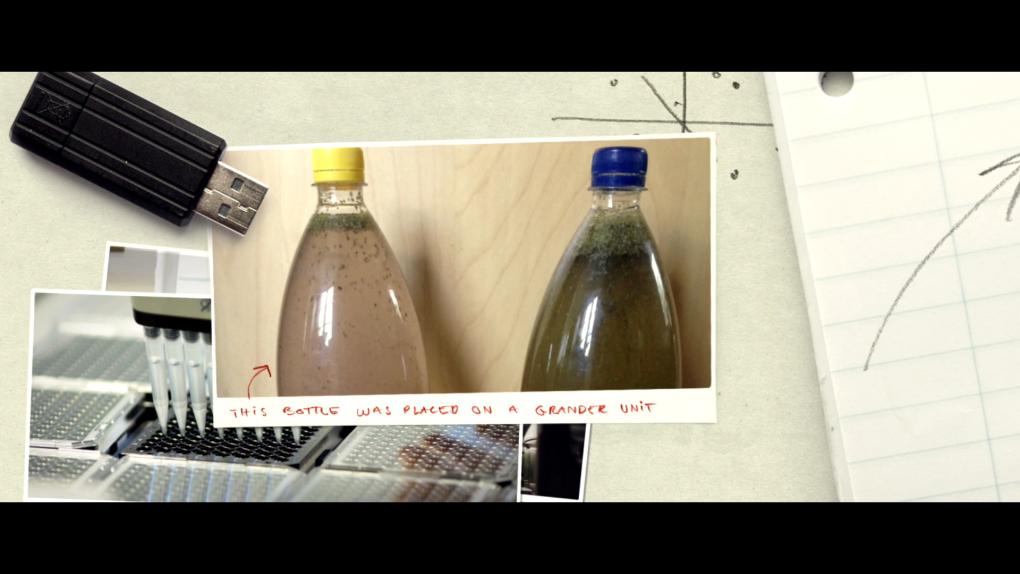
About the film
'…when you look away' is directed by Phie Ambo and produced by Malene Flindt Pedersen for Viola-Lucia Film with support from the Danish Film Institute.
IDFA premiere
The film world premiered in the main competition at CPH:DOX and is making its international premiere at IDFA 2017 (15-26 November) in Masters, the section for reputable documentarians' latest works.
